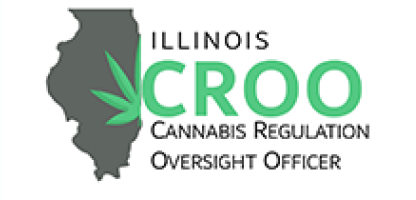Expungement
The Cannabis Regulation and Tax Act allows for expungement, the erasing of the public record of a person’s criminal history, for cannabis offenses. For free legal representation to help expunging your records, contact New Leaf Illinois, a statewide, state-funded initiative made up of 18 non-profit organizations throughout Illinois who provide free legal representation or legal information to people who want their cannabis convictions off their record.
1. Minor cannabis offenses, which are usually possession, manufacture, delivery, or intent of delivery of under 30 grams cannabis that did not result in conviction, are automatically expunged and removed from the public record. As of January 17, 2023, the Illinois State Police have expunged over 780,000 charges for minor cannabis offenses since July 2019.
2. Minor cannabis offenses that resulted in a conviction—the person pled guilty or was found guilty by a court—may be pardoned by the Governor which expunges the record and removes the record from public databases. As of January 17, 2023, the Governor has pardoned 11,430 conviction records for minor cannabis offenses since July 2019.
3. County State’s Attorneys may request courts vacate and expunge convictions. As of January 17, 2023, 23,097 conviction records for minor cannabis offenses have been vacated and expunged since July 2019.
The majority of the expungements have been in Cook County (over 488,000 records). The map below shows the total number of charges and records expunged since enactment of the Cannabis Regulation and Tax Act, including arrest records automatically expunged, convictions pardoned and expunged by the Governor, and convictions vacated and expunged by individual county State’s Attorneys.
Further details:
Visualization by CROO using Illinois State Police data, as of January 17, 2023
“Records” mean criminal charges or counts. For example, law enforcement may arrest a person and charge them with possession of cannabis and possession of paraphernalia (two arrest charges). One case may have multiple records. One person may have multiple cases with multiple records. The record totals above are for each individual charge or count.
“Conviction” records are where the defendant pleads guilty, is convicted by a judge or jury, or is adjudicated delinquent by a court.
“Non-conviction” records are for any charge or count that does not result in a pleading or finding of guilt. These records may include cases where the prosecutor does not pursue charges or defers prosecution, where the case results in a conditional discharge agreement (case is dismissed if no further charges in a set period of time), or if the defendant is found not guilty.

